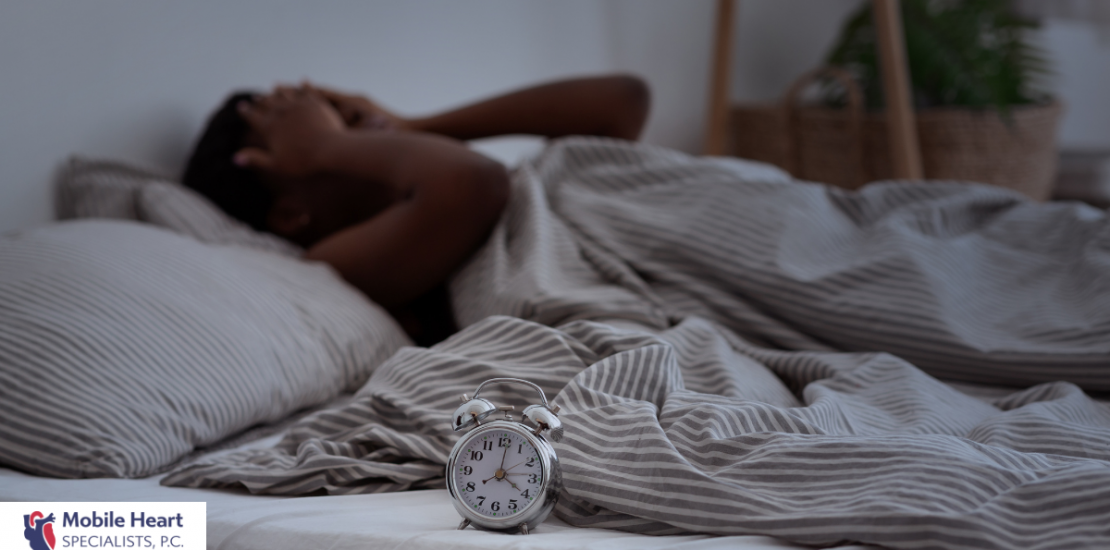- July 1, 2024
- Posted by: sabrina@salexanderconsulting.com
- Category: Uncategorized

You’ve probably often heard from doctors, friends, family members and, yes, even social media influencers how important it is to get good, quality sleep. Sleep can help your mood, stress levels and inflammation, but it’s also crucial to maintaining a healthy heart.
According to the American Heart Association, 30 million people may be living with sleep apnea but fewer are diagnosed. For people who suffer with sleep apnea, getting a restful night of sleep can feel impossible. Here, we share some ways sleep apnea can cause other issues in your body and what you can do to mitigate its symptoms.
What is Sleep Apnea?
Sleep apnea, also known as obstructive sleep apnea or OSA, is a breathing disorder that happens when tissues in the tongue or throat relax during your sleep, causing an obstruction. This can cause pauses in breathing, shallow breathing or collapsing of the airway. OSA affects people of all ages, but is most common in men over 40 who are obese or overweight.
How Does it Affect My Heart?
OSA can prevent your body from getting enough oxygen during the night, which can lead to a myriad of issues. When your oxygen levels drop, your body produces adrenaline, a stress hormone. Over time, this can cause high blood pressure. Both left untreated can lead to increased levels of LDL cholesterol and blood fats as well as an increased chance of having a heart attack, stroke or congestive heart failure.
STOPBANG: The Sleep Apnea Test
As we mentioned above, many people don’t realize that they are suffering from sleep apnea. To see if you need to be assessed for OSA, we recommend the STOPBANG test (Source: Harvard Health Publishing).
STOPBANG stands for the following:
- Snore: Do you snore or have you been told that you do?
- Tired: Do you often feel tired even after a full night of sleep?
- Obstruction: Has anyone witnessed you not breathing while asleep?
- Pressure: Do you have high blood pressure?
- Body Mass Index: Is your BMI above average?
- Age: Are you 40 or older?
- Neck: Is your neck more than 16 inches (women) or 17 inches (men) around?
- Gender: Are you a male?
If you answered “yes” to three or more of the above questions, it’s likely that you have sleep apnea.
What Can I Do to Treat My Sleep Apnea?
If you are experiencing sleep apnea symptoms, it’s important to contact your healthcare provider immediately. Often, the doctor will recommend an overnight monitoring of your sleep at a sleep center or using a home sleep testing kit. From there, your doctor might refer you to an ears, nose and throat specialist to rule out sinus blockages as well as a cardiologist to look for symptoms of heart-related issues.
If your case is mild, lifestyle changes like losing weight and quitting smoking will be recommended. For moderate to severe OSA, your physician might recommend a CPAP (continuous positive airway pressure) to wear while you sleep.
Other Tips for Quality Sleep
There are several small habits you can implement to help improve your sleep, including developing a nighttime routine and sticking to a sleep schedule. Find more tips for quality sleep here.

